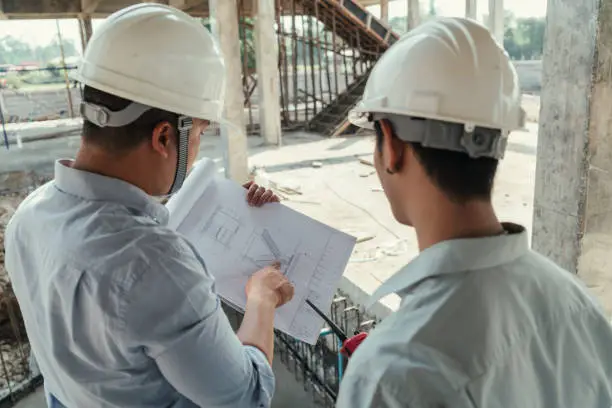BIM is also known as building information modeling as it has changed the construction industry by improving its design as well as coordination of building projects. Applying BIM involves the top-down approach and the coordination of model application, collaboration, and management procedures. As this report will show, there are best practices on how managers can use BIM to enhance the efficiency of construction work.
Effective Designing Drafting Techniques for BIM Implementation
To ensure implementation of BIM is as easy as possible, more time must be devoted to the early design development process of developing clear modeling protocols and object catalogs. Having such components as walls, doors, and windows standardized makes the various models comprehensible across disciplines. Secondly, the development of intelligent forms with embedded parametric constraints and dependencies on objects is quicker and less error-prone than manual encoding. Setting the foundation using the right BIM templates and rules will go a long way in facilitating the task of drafting.
Best Practices for Integrating BIM Modeling in Construction
BIM Modeling Services involves active cooperation from contractors, interlinked work processes, and synchronized model sharing. It is recommended that contractors are involved as key participants in the virtual design sessions to contribute constructability feedback. It is also necessary to define how models are used, what level of detail is required, and handover points across team phases. Additionally, being consistent in BIM coordination meetings to merge models reveals clashes.
Enhancing Project Efficiency with BIM and Designing Drafting
BIM makes construction work more efficient by allowing the creation of construction drawings in the shortest possible time and with high precision. Automated update of changes also helps reduce the time spent redrafting since changes only need to be inputted into the already existing document. Moreover, with model data one can quickly produce material takeoffs, cost estimates, and construction sequencing of the proposed solution enhancing pre-construction planning. Reduced to its basic elements, designing for efficiency means the need to take into consideration the downstream uses when modeling.
Leveraging BIM Modeling for Accurate Wood Framing Cost Estimation
Advanced BIM models contain specific framing member quantities and specifications for framing members as part of the cost estimation process. This way, separating walls, floors, roofs, openings and connections as separate stock bars enables the generation of material lists. In addition, it is possible to introduce specific parametric rules that allow for the rapid assessment of structural design changes. Two factors make linking estimators to continuously updated models helpful: cost insights.
Streamlining Construction Projects with BIM Implementation Strategies
The key to effective BIM coordination begins with the development of overall company-wide BIM standards that can be followed consistently. It also includes the early involvement of contractors in the development of a virtual design and design of strategic planning concerning handovers of models at progressive stages. Also, efficient and effective templates, including ways to enhance clash detection and flexibility in data preparation help in construction preparation. User training as well as feedback augment these procedures further on.
Optimizing Wood Framing Cost Estimation through BIM and Designing Drafting
The models of BIM built for framing are efficient when the assemblies, types, and materials are properly defined for the detailing of takeoff. Standardizing the methods for modeling the walls, floor, and roof is also beneficial as it assists in the quantification of the materials. Last but not least, the definition of estimators as objects that are linked to BIM models instead of simple and static 2D drawings allows for automatic update of the Wood Framing Cost Estimators in case of changes in the design.
Advanced BIM Modeling for Precise Designing Drafting
BIM is one of the greatest advancements in the designing drafting sector because it provides new ways to manage projects and makes their execution faster and more compact. High-end BIM modeling can give accurate 3D models for design drawings, design coordination, interference checking, estimation of quantity take-offs offs, and construction planning.
Sophisticated BIM applications like Autodesk Revit, Tekla Structures, and GRAPHISOFT ARCHICAD can generate 3D models that contain detailed parametric information attached to objects. This aids in the process of extracting data for the preparation of shop drawings, material take-offs, cost estimations, etc BIM Modeling companies have strong IT support, qualified and experienced human resources, and quality to ensure that they provide accurate BIM models in compliance with the needs of the client.
There are several benefits of leveraging advanced BIM services such as reduced possibilities of designing errors, shortened project duration, and the capacity to compare various building plans. It is an intelligent 3D BIM model that can serve as a basis for accurate construction of combined parts of a building, as well as for coordination of construction work and for monitoring project implementation during the construction phase. As awareness of BIM functions increases, more construction companies are seeking help from qualified BIM modeling firms for accurate Designing and Drafting for their projects.
Conclusion
To realize BIM’s potential for efficiency, the focus should be on how to employ it, including the setup of standards and workflow, and the versatility of uses of model data. To fully realize the benefits of BIM, construction teams should: engage in cross-functional communication at the onset, adhere to a standard set of modeling protocols, incorporate automation in the workflow, and periodically reflect on the BIM process. As such, through best practices, firms can enhance optimum project performance and be more competitive.

